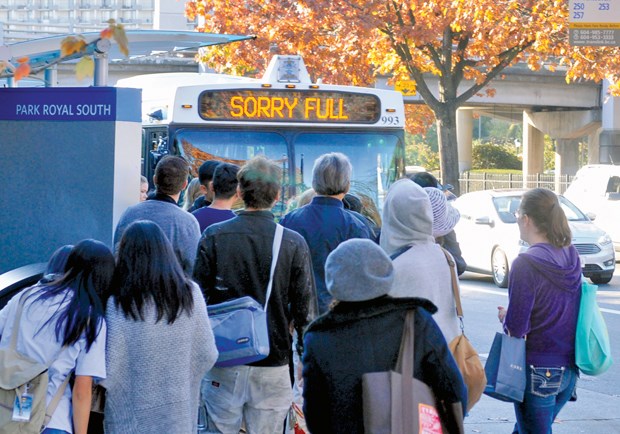Dear Editor:
The recent census stats convincingly point to the chief cause of our commuting chaos. And clearly it’s not new development or lack of housing supply. Instead it’s people working on the North Shore who are forced to commute as they can’t afford to live here. Building new bridges, tunnels and highways is not a solution. Within a few years traffic will again be clogged. The recently completed expansion of Highway 1 between the Port Mann Bridge and Burnaby has already become a nightmare.
And don’t count on a mere housing “correction” to turn things around. There would have to be a 40-50 per cent decline in house prices on the North Shore to draw enough people to move here and substantially reduce bridge traffic – an unlikely event that would cause massive financial hardship for homeowners if it did.
What we need are innovative proposals for reducing single-occupancy car traffic and provide much better public transit access to and across the North Shore.
We need to look at mobility pricing such as District of North Vancouver Mayor Richard Walton is promoting, trams and buses that focus on taking people to the major destinations on the North Shore (large employment clusters, malls, major commercial corridors), more bus-only lanes, ride sharing services and other ways to raise the efficiency of moving people from A to B. (A third SeaBus doesn’t cut it if it leaves people stranded at Lonsdale Quay or if we don’t provide transit for 1,300 Seaspan employees at a site where there is none.)
If the object is to reduce car traffic, we need to make public transit convenient, reliable and frequent.
And we need another key set of statistics. What is the cost of our commuting gridlock in lost time and productivity and in fuel and environmental costs? Do we know how many billions? When will the province or Metro Vancouver commission such a study and put a price on the current productivity losses? Then we can have an evidence-based discussion on how to achieve the “greater good” – reducing this colossal waste by investing in an efficient transit network.
Garrett H. Polman
West Vancouver
What are your thoughts? Send us a letter via email by clicking here or post a comment below.



